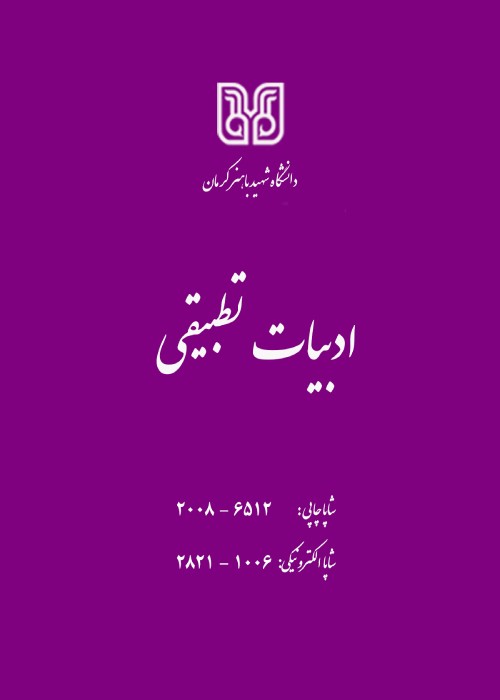Similarities of Thought between Hafiz and Eckhart Tolle Based on Peak Experience
Comparative literature is a new branch in literary research, which has an unbreakable bond with topics like literary criticism, textual criticism, and investigation of the purpose of speech in the prominent works of different nations. This phenomenon was put forth almost two centuries ago in France which was then followed by Germany, Japan, and the United States of America. This kind of research was conducted in Iran in the 14th century A.H. for the first time, when the University of Tehran was founded. Different articles and works in various fields such as epic, mystical, lyrical, were published in the form of poetry or prose in Persian, Arabic, French, English and other languages. Comparative research is of paramount importance since the authors and audience of such works would get a deeper cultural understanding, and as a result of the expansion of such research, different morals such as conciliation, and peace, restraint from bigotry and prejudice would govern sociocultural relations. Therefore, considering the present status of our planet and its military and political challenges, contrastive works can help bring cultures and nations closer together and establish permanent peace.
The present study has tried to contrastively investigate several fundamental lines of thought between Hafiz and Tolle based on the theory of ‘peak experience’ and according to the different readings of Hafiz’s poems and Tolle’s works and the similarities of thought between them.
The Divan of Hafiz is certainly one of the most cryptic written world heritages. The more one dives into it, the more unknown aspects will emerge. This is, in fact, a kind of text in which the fate of man is reflected. The eloquence and the style of the text attracts different types of audience. Hafiz has always had a certain place in the minds of all Persians as well as other literary readers in such a way that those who read Hafiz try to look for themselves in his Divan. This splendid literary text has great capacity for comparative research, a fact which has resulted in writing many books and articles in this regard. On the other side, the prominent German writer, Eckhart Tolle, who, as a result of a spiritual evolution, has found acuity and new knowledge about himself as well as the world, and who has also created concise works which have been translated into other languages and attracted much audience around the world, has thoughts and perspectives similar to those of Hafiz. The present study, therefore, has tried to contrastively investigate and analyze the concise sayings of Hafiz and Tolle based on the theory of peak experience which some people have gone through and found new knowledge perspectives. Among the similar topics in Hafiz’s poems and Tolle’s works, adoring or worshiping the nature, conciliation and tolerance, self-denial, transient turns of the universe, and living in the moment have been investigated in the present research. This study has tried to prove, through peak experience theory, that the two intellectuals have had similar viewpoints towards the phenomenon of existence and knowledge of oneself despite the different times they were in.
Hafiz wrote about the ups and downs of man’s fate and his desires and limitations in an intellectual way. One of the most fundamental thoughts of Hafiz was his love of man and his open-mindedness towards man’s freedom. By adoring or worshiping the beauties of nature, and also by looking thoughtfully at those beauties, Hafiz tried to change the man’s mind and knowledge, and draw up a new plan to make a man in possession of tolerance and conciliation. In a similar fashion, Tolle tells of a new land and highlights the purification of thought or catharsis. The two intellectual have tried to sketch a new plan based on munificence, respect, and friendship of all mankind. It seems that humanism, gentility, and respecting others’ rights irrespective of the race, color, religion, etc., has been one fundamental concern of Hafiz and Tolle. Based on the relationship between self-actualized people and peak experience, and based on the findings of the present study, Hafiz and Tolle have reached high levels of acuity and self-knowledge as two philanthropic intellectuals and have expressed their personal experience in the form of concise, meaningful, and wise sayings and poems. The concise poems of Hafiz which are also referred to a ‘subtle-poems’ can be compared to those of Tolle which are known as “sutras”. The common message of Hafiz’s poems and Tolle’s sayings is reaching inner peace, self-acceptance, and reconciling oneself and the universe.
- حق عضویت دریافتی صرف حمایت از نشریات عضو و نگهداری، تکمیل و توسعه مگیران میشود.
- پرداخت حق اشتراک و دانلود مقالات اجازه بازنشر آن در سایر رسانههای چاپی و دیجیتال را به کاربر نمیدهد.



